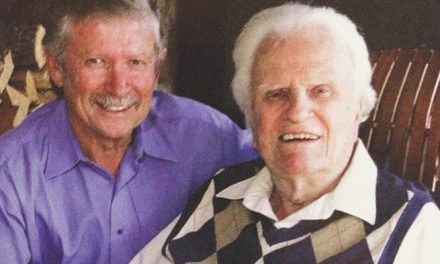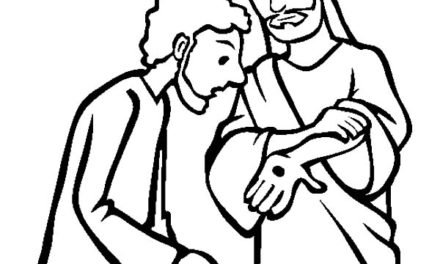 Muhammad Ali, born Cassius Clay in Louisville General Hospital at 6:35pm on January 17, 1942, took his original name, Cassius Marcellus Clay, from his father, a Methodist and a sign/mural painter. His mother, Odessa Grady Clay was a housemaid whose grandfather was a white Irishman named Abe Grady from County Clare, Ireland. Cassius was born when ‘segregation was a way of life in Kentucky, and reminders of second-class citizenship were everywhere.’[1] It could be said that, what Susanna Wesley was to John Wesley was what Odessa Clay to Cassius. According to Cassius, ‘my mother is a Baptist … She taught me all she knew about God. Every Sunday, she dressed me up, took me and my brother to church, and taught us the way she thought was right. She taught us to love people and treat everybody with kindness. She taught us it was wrong to be prejudiced or hate … I ‘ve changed my religion and some of my beliefs since then, but her God is still God … My mother is sweet, fat, wonderful woman, who loves to cook, eat, make clothes, and be with family. She doesn’t drink, smoke, meddle in other people’s business .. there is no one who’s been better to me my whole life.[2] Odessa, regardless of her hard life when she was young, nurtured her children in God’s way hence, Ali’s ‘deep religious, mercurial, and generous’ lifestyle. Cassius’father corroborated Odessa’s virtues. According to him, the two boys, Cassius and his brother Rudolph ‘were church boys because my wife brought them to church every Sunday. She was a good Baptist, I was a Methodist … their mother taught them right, taught them to believe in God.’ Odessa and Her husband used to called Cassius ‘GG’ based on how babies jabber at the side of their cribs. Cassius as a baby used to say ‘gee, gee, gee.’ The ‘GG’ later became a Golden Gloves world champion.[3]
Muhammad Ali, born Cassius Clay in Louisville General Hospital at 6:35pm on January 17, 1942, took his original name, Cassius Marcellus Clay, from his father, a Methodist and a sign/mural painter. His mother, Odessa Grady Clay was a housemaid whose grandfather was a white Irishman named Abe Grady from County Clare, Ireland. Cassius was born when ‘segregation was a way of life in Kentucky, and reminders of second-class citizenship were everywhere.’[1] It could be said that, what Susanna Wesley was to John Wesley was what Odessa Clay to Cassius. According to Cassius, ‘my mother is a Baptist … She taught me all she knew about God. Every Sunday, she dressed me up, took me and my brother to church, and taught us the way she thought was right. She taught us to love people and treat everybody with kindness. She taught us it was wrong to be prejudiced or hate … I ‘ve changed my religion and some of my beliefs since then, but her God is still God … My mother is sweet, fat, wonderful woman, who loves to cook, eat, make clothes, and be with family. She doesn’t drink, smoke, meddle in other people’s business .. there is no one who’s been better to me my whole life.[2] Odessa, regardless of her hard life when she was young, nurtured her children in God’s way hence, Ali’s ‘deep religious, mercurial, and generous’ lifestyle. Cassius’father corroborated Odessa’s virtues. According to him, the two boys, Cassius and his brother Rudolph ‘were church boys because my wife brought them to church every Sunday. She was a good Baptist, I was a Methodist … their mother taught them right, taught them to believe in God.’ Odessa and Her husband used to called Cassius ‘GG’ based on how babies jabber at the side of their cribs. Cassius as a baby used to say ‘gee, gee, gee.’ The ‘GG’ later became a Golden Gloves world champion.[3]
Cassius ‘did everything before his time,’ including talking and walking; started boxing at age 12 at Columbia Gyn’s amateur programme. He won a gold medal in the 175 pound division against Tunney Hunsaker at the October 1960 Olympic Game in Rome. Under the inspiration of Teddy Brenner, the fight expert and the best matchmaker boxing ever had, Ali introduced himself to New York boxing writers in 1962 after beating Sonny Banks.[4] With dancing and running, he bend way back to avoid punches with candour, ‘baravado and antics in the ring’ like that of Maxie Baer ‘who, in the ’30s, vowed he’d become heavyweight champion of the world.’ When boxing was at its height in popularity, Baer beat Primo Carnera in 1933 in 11 round knockout to captured the world heavyweight belt which as the most valued trophy in sports then. Cassius Clay, a great student of boxing followed the legacy of Baer who had more fun wearing crown than anybody.
Clay came to UK to take on Britain’s hardest punching heavyweight, Henry Cooper called ‘Energy,’ and Clay battered Cooper before the referee intervened. Clay later defeated Sonny Liston in Miami Beach on Feb. 5, 1964 in the seventh round.[5] On the second day of the fight with Liston, Clay, the heavyweight champion announced to the world, ‘You will all call me by my real name now … I am Muhammad Ali and I will never again answer to that slave name, Cassius Clay.’ In protest against, segregation, racial discrimination Ali and the Black community have been facing,[6] he shocked the United State by embracing the Nation of Islam, ‘a religious group that seeks to improve life for blacks in the US.’ According to Dawud Walid, Ali ‘was perhaps the largest and most influential pop culture icons for African-Americans and Muslims … In the civil rights era, he stood against the discrimination we’ve all faced in the US. He crystallised the mind-set of resistance … and not to submit to stereotypes …’[7] Ali whose friendship with the ‘The Prince’ Malcolm X, an activist, and Elijah Muhammad, his spiritual mentor worried conservatives, risked his boxing career and his reputation to opposed the Vietnam War. Ali questioned the US foreign policy including the‘convenient historical narratives.’ He refused to serve in the US army. According to him, ‘I don’t believe in killing …’ He was charged for felony and penalised at a 1967 trial and stripped of his heavyweight title. Four years later, the US Supreme Court reversed the conviction. In the ring in 1970, Ali, a poetic man continued to ‘float like a butterfly, sting like a bee’ under the inspiration of his trainer, Angelo Dunde.
On March 8, 1971, at the new Madison Square Garden, in what it was called the ‘Fight of the Century,’ Ali lost to Joe Frazier, ‘Smoking Joe,’ who was then the reigning king.[8] The third fight between Ali and Fraizer ‘The Thrilla in Manilla,’ the capital of the Philippines was described as a permanent injury for Fraizer. Ali later fought George Foreman in October 30, 1974 ‘the Rumble in the Jungle’ in Kinshasa, Zaire, now called the Democratic Republic of Congo. In the 1980s, Ali fought his final professional fight and married his fourth wife, Lonnie Williams. He left the hard-line Nation of Islam and ‘remained politically active despite the onset of Parkinson’s.’ Ali, a global citizen, brokered the release of Americans who had been held hostage after the invasion of Kuwait when he met Iraqi leader Saddam Hussein in 1990. In 2011, Ali, the man of many facets, facilitated the release the US hikers Bauer and Josh Fattal held captive by Iran. To Ali, ‘hearts, minds and souls know no colour,’ he represented Bosnia and Herzegovina, (BiH) at the United Nations in 1992 to urge action to confront the genocide. He was later appointed a United Nations Messenger of Peace and lit the Olympic Torch for the 1996 Atlanta Games.
Ali’s 74 years on earth including his 25 year career with 56 wins, 37 knockouts and 5 losses shows how to make a meaningful life in this slippery world and how the ‘cleverest and strongest men are worn down by a brain illness.’ Ali, a champion with the stuff of legend was bigger than boxing. Using his words, Ali said, ‘I won’t miss fighting, fighting will miss me.’ This provides a link and reflection to his famous statement that, ‘this life is not real. I conquered the world and it did not bring me satisfaction. God gave me this illness to remind me that I’m not number One; He is.’ The life of an ‘underdog’[9] who became a champion open doors, change people and nations, ‘creates opportunities and enlightens and permits things that might otherwise have seemed unthinkable.’ Just as Mandela denounced apartheid in South Africa, Ali denounced everything that have been forced on his community including the name ‘Clay.’ Ali’s conversion is argued to be ‘a very politically motivated decision … Malcolm X saw in Clay a charisma that drew people to him,’ that ‘could potentially bring admirers into the fold with him.’[10] Malcolm saw charisma in Ali, and the segregated ‘gee gee gee,’ became the world Golden Gloves. The former US President, George W Bush bestow upon Muhammad Ali, America’s greatest honour, the Medal of Honour in 2005. Bush attested to the strength behind Ali’s ‘beautiful soul.’ According to Bush, just like Odessa and Cassius Clay, Sr, believed their son could be, Ali ‘was a fierce fighter and he’s a man of peace.’ To Ali, money is not God. Ali was ‘not a dam, nor a blocked aqueduct,’ but a channel which flows the riches that overflow in his direction.[11] Ali observed correctly, ‘I hated every minute of training, but l said, don’t quit. Suffer now and live the rest of your life as a champion.’ Ali is more than ‘a victim of a sport that destroys its heroes.’ Ali stood for peoples right and shook up the world for better. As a master of his trade, Ali was an inspiration to humanity, ‘a universal treasure’ that transcended borders and barriers, race and religion. Ali used his talent to box his way to fame and stardom and could not be cowed down to submission. Ali’s faith in the God of his mother made the difference. The reflection is that, Ali paid the price of success and lived the rest of his life as a champion with the belief that the true reality of life belong to God, the number One, the God of his mother, JESUS CHRIST.
[1] Hauser, Thomas, Muhammad Ali: His life and Times (New York: NY:, Simon and Schuster, 1991), p. 17
[2] Hauser, Muhammad Ali, p. 10
[3] Hauser, Muhammad Ali, p. 15
[4] http://www.nydailynews.com/sports/muhammad-ali-knew-tribute-late-bill-gallo-article-1.2660767
[5] Hauser, Muhammad Ali, p, 305
[6] Hauser, Muhammad Ali, p. 17
[7] Walid, Dawud, in The life of Muhammad Ali 1942-2016, www.aljazeera.com/indepth/features/2015/03/obituary-muhammad-ali-1942-2016
[8] Hauser, Muhammad Ali, p. 203
[9] Hauser, Muhammad Ali, pp. 234-40
[10] Rohit Choudhary, Why did Muhammad Ali convert to Islam, https://www.quora.com/Why-did-Muhammad-Ali-convert-to-Islam.
[11] Hauser, Muhammad Ali, p. 361










Thank you for this piece.
Nice one